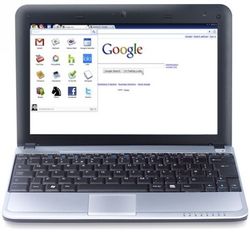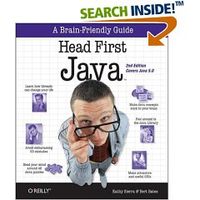 When I traveled to China in 2009 I had an HP Netbook with me.
When I traveled to China in 2009 I had an HP Netbook with me.
It was a failure. It only had 2 Gigabytes of internal storage, which within a few months wasn't even enough to run Windows (which updates constantly). I bought a 32 Gbyte stick for it, but as that wasn't the primary drive Windows never recognized its full capacity.
Now Google has, through Samsung and Acer, introduced Chromebooks that solve all those problems. And they, too, have Fail written all over them.
The problem is not the operating system, or the dependence on online updating. (Ostatic seems to have a problem with that). The hardware itself is first-rate, with 32 Gigabytes of chip memory inside the box and a Linux that won't swallow it all, leaving plenty of room for applications.
The problem is the basic design.
 Keyboards and mice are now peripherals to the client computing experience. Apple has changed the rules, and for the most part Google has followed those changes with its software. It just couldn't call back this hardware, which turns out to be the first time it's gone into the channel with its name on the cover of something.
Keyboards and mice are now peripherals to the client computing experience. Apple has changed the rules, and for the most part Google has followed those changes with its software. It just couldn't call back this hardware, which turns out to be the first time it's gone into the channel with its name on the cover of something.
As a reporter, what I need is a way to record what I'm hearing, turn that into coherent notes, and edit what I have – audio, video, and text – into something compelling, then get that posted. This would have been a great solution two years ago, but I need more now, and that comprehensive editing suite isn't here.
All this is a simple illustration of how fast technology can change, and how even the most nimble player may find itself out-of-touch as a result. Had these devices come out a year ago, they would have flown off the shelves, at $450 including tax. Now, with iPads costing just $499, they're going to gather dust, and probably wind up in the bargain bin.
What's sad to me, however, is how Linux will take a hit from this. The Chromebook, like the Android phones and tablets, is a Linux. It's a Linux with significant legal troubles, troubles that could still take the whole desktop Linux movement down with them. Because Google didn't do its homework on Java, Linux is going to take a huge hit when it should be breaking through.











Chromebooks are built and optimized for the web. Always Connected All-day battery life means that you can connect anywhere and never miss a beat on the web.Article Submission
Chromebooks are built and optimized for the web. Always Connected All-day battery life means that you can connect anywhere and never miss a beat on the web.Article Submission
Some people prefer open source because it’s free. It just depends on the end-user’s preferences.
Some people prefer open source because it’s free. It just depends on the end-user’s preferences.